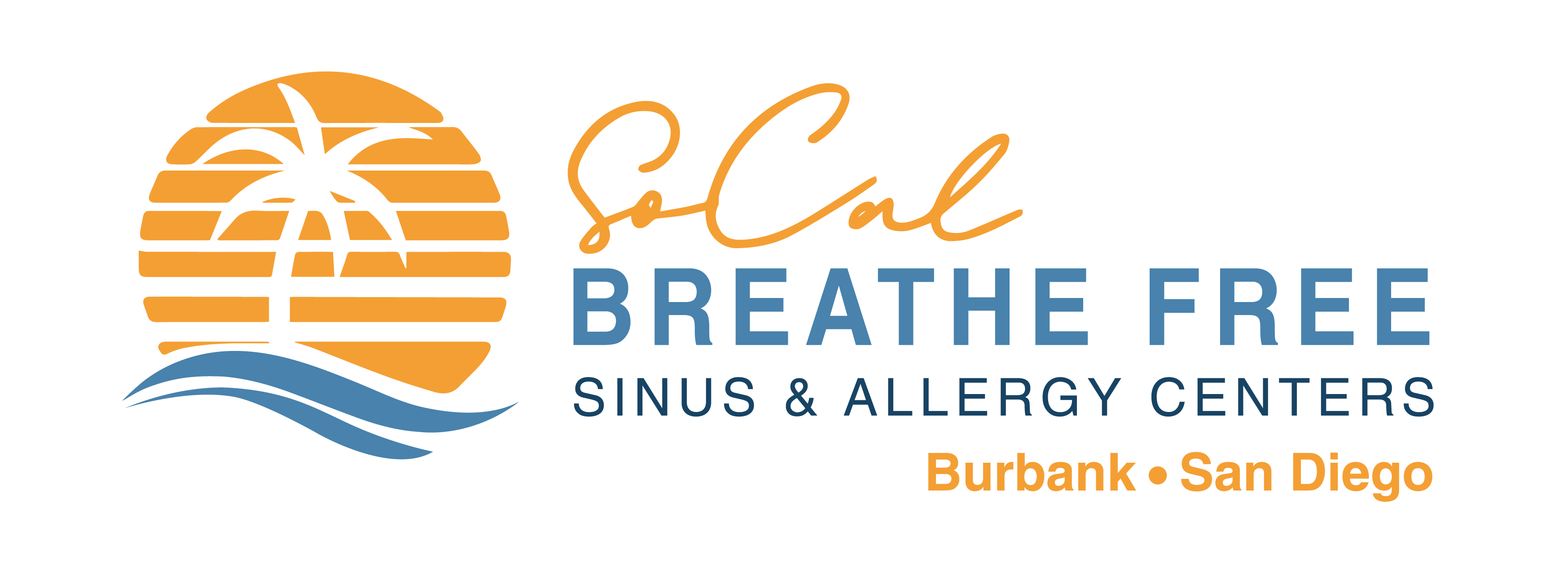TMJ Disorder Treatment in Burbank, CA
Temporomandibular joint (TMJ) Treatment
Temporomandibular joint (TMJ) disorder can cause extreme discomfort that affects almost every area of your life. If you have chronic or recurring jaw pain, stiffness, headaches, jaw tension, and difficulty chewing or opening your mouth, you may have TMJ disorder. At SoCal Breathe Free Sinus & Allergy Centers, our board-certified physicians have years of experience diagnosing and treating TMJ disorders in Burbank & San Diego, CA. If you recognize TMJ disorder symptoms or have already received a TMJ disorder diagnosis, our team can create a personalized TMJ treatment plan that relieves your symptoms.

What Is TMJ Disorder?
TMJ disorder is a medical condition affecting the temporomandibular joint, the main joint in the jaw. It also affects the soft tissues surrounding the jaw. TMJ disorder can cause jaw pain and tenderness, tension headaches, and trouble opening the mouth or chewing. The most common causes of TMJ disorder are bruxism (teeth grinding), trauma or injury to the jaw, arthritis, age-related joint degeneration, congenital issues, and wear and tear.
Causes of TMJ Dysfunction
TMJ disorder occurs when the jaw joints and surrounding muscles, ligaments, and tendons are damaged or worn down. Temporomandibular joint disorder (TMD) can be diagnosed as one of three categories: a disorder of the jaw joint, a disorder of the muscles used to chew, or as headaches resulting from TMJ disorder. The most common causes of TMJ dysfunction are:
- Trauma or injury to the jaw, such as a broken jaw
- Bruxism or teeth grinding or clenching
- Arthritis
- Stress
- Congenital issues that affect the jaw
Recognizing TMJ Disorder Symptoms
The most common symptom of TMD is jaw pain. You may also feel tenderness in the area around the jaw or notice inflammation or swelling around the jaw. Other TMJ disorder symptoms include:
- Neck or shoulder tenderness or stiffness
- Facial pain
- Jaw stiffness and loss of range of motion of the jaw
- Trouble opening your mouth
- Pain or discomfort when chewing, eating, or speaking
- Tension headaches or migraines
- A popping or clicking sound when you move your jaw
- Inflammation of the gum tissue or toothaches
- Ringing in your ears
Getting a TMJ Disorder Diagnosis
Our team has years of experience evaluating and diagnosing TMJ disorder. We will begin by completing a thorough physical evaluation to assess the health of your jaw, mouth, neck, and surrounding areas. We may ask you to open and close your mouth so that we can evaluate the range of motion of your jaw. We may also touch or press on your face, jaw, and neck and feel the area around your jaw joints. We may recommend an x-ray, CT scan, or MRI to confirm a diagnosis of TMJ disorder or check for symptoms of another condition. Our examination and testing will also help us design a personalized TMJ disorder treatment plan that addresses the root cause of your TMD.
Our TMJ Disorder Treatment Options
We will use a combination of different therapies and treatment methods to help you find relief from TMJ disorder symptoms and prevent future symptoms. We typically combine medication, physical therapy, and lifestyle modification. In rare or extreme cases, we may refer you for a surgical consultation.
- Medication – Some anti-inflammatory pain medications can relieve TMJ pain and inflammation. We may also recommend muscle relaxers or antidepressants.
- Physical Therapy – Physical therapy can relieve pain and tension in the jaw joint and surrounding soft tissues, making it easier for you to move your jaw and open and close your mouth. Physical therapy can also reduce your risk of future TMJ disorder symptoms.
- Lifestyle Modification – We may recommend that you make specific lifestyle adjustments to relieve your symptoms and reduce your risk of future symptoms, including undergoing treatment for bruxism, practicing stress management techniques, changing your sleep habits or sleep position, avoiding certain types of food, improving your posture, and avoiding chewing on pens, pencils, ice, gum, and other items.
- Nonsurgical Treatment – Our nonsurgical treatment options offer conservative treatment that is safe, effective, and non-invasive. We may recommend mouthguards, physical therapy, ultrasound therapy, trigger point injections, or transcutaneous electrical nerve stimulation.
- Surgical Treatment – In severe cases or cases that don’t respond to conservative treatment, we may refer you to a surgeon. Your surgeon may recommend arthrocentesis, TMJ arthroscopy, or open-joint surgery.
Why Choose SoCal Breathe Free Sinus & Allergy Centers
At SoCal Breathe Free Sinus & Allergy Centers, we pride ourselves on offering the best ENT care in Southern California. Our board-certified physicians have years of experience diagnosing, evaluating, and treating sinus and allergy issues and are committed to finding safe, effective solutions for each patient. We will work closely with you to understand your symptoms and needs and help you work towards your health goals so that you can live a happier, healthier life. We specialize in treating ear disorders, nasal problems, and throat disorders. Our goal is to create an environment in which patients feel comfortable getting the treatment they need, and to provide resources and educational opportunities for patients to learn more about improving their overall health and wellness. We offer highly individualized patient treatment plans and continuing care from a team of friendly and experienced physicians.
Schedule a TMJ Treatment Consultation
If you recognize symptoms of TMJ, our team at SoCal Breathe Free Sinus & Allergy Centers can help. When you schedule a TMJ treatment consultation, we will evaluate your symptoms, overall health, and lifestyle to make a formal diagnosis of TMJ. We can then create a personalized TMJ treatment plan. Contact us to schedule an initial consultation for TMJ disorder in Burbank & San Diego, CA.
